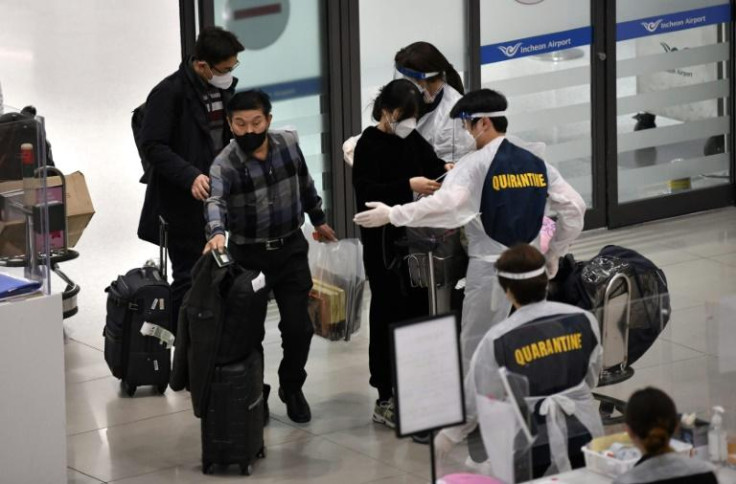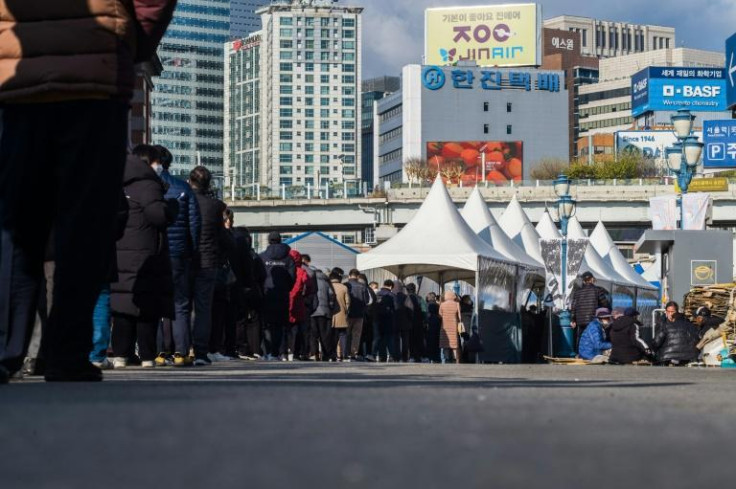South Korea detects first Omicron cases, tightens travel curbs
It said all travellers entering the country will be tested for the new variant.
South Korea on Wednesday reported its first cases of the Omicron coronavirus variant and tightened travel restrictions as fears grew about the strain's impact on the country's ongoing Covid surge.
Health authorities said Omicron was detected in five people, including a fully vaccinated couple who had visited Nigeria from November 14 to 23, returning two days before the variant was officially reported by South Africa.
They tested positive for the coronavirus on Thursday, and subsequent genetic sequencing tests showed it was the new variant, said the Korea Disease Control and Prevention Agency (KDCA). It said their friend also had Omicron.

While much is still unknown about Omicron, its emergence has fuelled fears in South Korea and around the world that it could intensify Covid-19 outbreaks.
The WHO believes the high number of mutations on this variant may make it more transmissible or resistant to vaccines, but it could take weeks to determine whether and to what extent Omicron is vaccine-resistant.
It has warned against blanket travel bans, but dozens of governments around the world have rushed to impose restrictions -- mostly against southern African nations -- as the variant spreads.
As South Korea reported its first Omicron infections, it also announced a tightening of travel restrictions, including a suspension of direct flights to Ethiopia for two weeks.

It said all travellers entering the country will be tested for the new variant.
And from Friday for two weeks, all arrivals -- South Koreans and foreigners -- will have to quarantine for 10 days regardless of their vaccination status, KDCA said.
Earlier, exemptions were available in a number of cases, such as fully vaccinated South Korean nationals.
The government had already stopped issuing visas and arrivals of non-nationals from eight African countries, and added Nigeria to that list on Wednesday.
The detection of South Korea's first Omicron cases came the same day the country reported more than 5,100 new daily infections, the highest since the beginning of the pandemic.
More than 80 percent of the country's population has been fully vaccinated.
On the back of the rapid immunisation programme, authorities eased Covid restrictions earlier this month as they started rolling out their plan to live with the virus.
However, there has been a surge in infections since -- new daily infections have more than doubled in recent weeks, and authorities have warned about the growing pressure on the healthcare system.
Copyright AFP. All rights reserved.
This article is copyrighted by International Business Times, the business news leader





